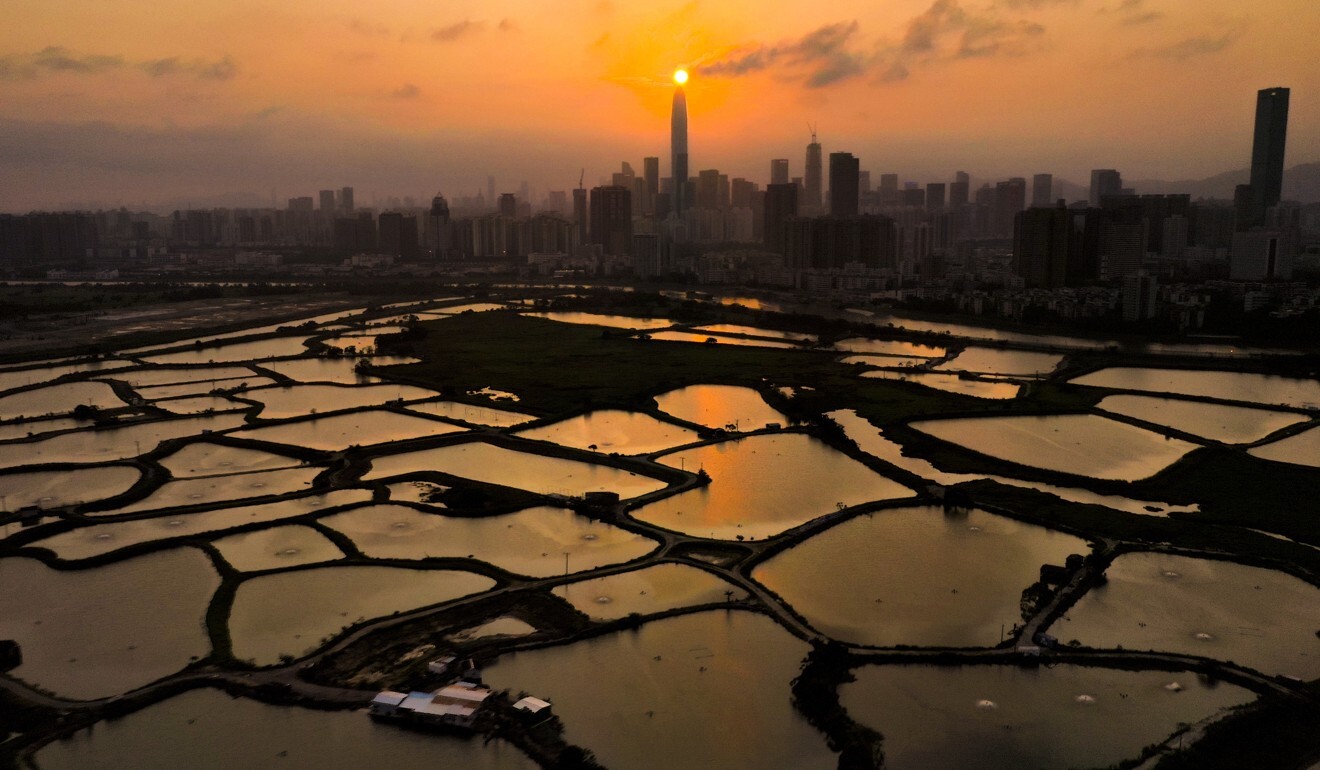
How does Hong Kong stay relevant in China’s new technological era? Innovation holds the key, analysts say
- Communist Party leadership declares self-sufficiency in technology a core element of China’s modernisation
- Beijing promises to uphold Hong Kong prosperity, stability in fifth plenum communique, but no mention of ‘one country, two systems’ as previously referred to
Hong Kong must work closely with Shenzhen and other neighbours over the border on technological innovation to stay relevant, according to analysts, after Communist Party leaders on Thursday made self-sufficiency in that field a top priority for the Chinese nation.
The document focused on the central government’s 14th five-year plan, which charts China’s economic and political course from next year to 2025, with progress in technology at its centre.
“We must insist on innovation as the core of our country’s modernisation … and consider technological self-sustainability as the strategic pillar of national development,” the statement read.

China’s relationship with the United States has deteriorated in recent years, with Washington looking to its European allies to help it counter Beijing’s rise as a technological power.
Hong Kong was only specifically mentioned at the end of the communique, saying: “We must also maintain the long-term prosperity of Hong Kong and Macau, and foster the peaceful development of cross-strait ties and unification of the motherland.”
Lau Siu-kai, vice-president of the semi-official think tank, the Chinese Association of Hong Kong and Macau Studies, said the brief reference to Hong Kong did not mean that the city had been marginalised.
Lau urged the city’s leaders to formulate policies to better involve local businesses in national planning, with Chief Executive Carrie Lam Cheng Yuet-ngor due to travel to Beijing on Wednesday to seek support for strategies to accelerate Hong Kong’s economic recovery.

The bulletin’s passing mention of Hong Kong, Lau argued, also showed that the city had been on the right track in delivering on the various policy instructions raised in the communique from a year ago, including “the establishment and improvement of legal systems and enforcement mechanisms to safeguard national security”.
Key annual meeting could hold answers about Hong Kong’s future
The country must also insist on looking at the overall picture when it came to national security, and upgrade its systems and capabilities related to safeguarding it, the statement added.
Tam Yiu-chung, Hong Kong’s sole delegate on the National People’s Congress Standing Committee, China’s top legislative body, said it was a “positive message” that Beijing had committed to protecting Hong Kong’s long-term prosperity and stability.

05:50
What you should know about China's new national security law for Hong Kong
“Hong Kong will continue to have an important role in the Greater Bay Area, it must continue to work with mainland [Chinese] cities such as Shenzhen, and to integrate itself with the mainland,” he said.
Under the bay area project, Beijing aims to turn Hong Kong, Macau, Shenzhen and eight other Guangdong cities into a financial and technological hub rivalling California’s Silicon Valley by 2035.
China’s leaders start major policy meeting to chart course for future
When the Communist Party issued its communique in October 2015, ahead of the implementation of its 13th five-year plan, it pledged to “elevate the status and functions of Hong Kong and Macau in the country’s economic development and opening up”.
Last year, the party’s communique from the fifth plenum, which is held annually, also pledged to uphold “one country, two systems”, the principle under which Hong Kong is promised a measure of autonomy.

04:35
What does ‘one country, two systems’ mean?
Witman Hung Wai-man, a Hong Kong deputy to China’s legislature, the National People’s Congress, said even though such phrases were not repeated in the latest communique, Beijing would continue to support Hong Kong and value the city.
“Apart from attracting talent from abroad, Hong Kong’s designers and professionals can also help mainland companies to create new brands, as the country boosts domestic consumption,” he said.
China sets out road map for the future as policy meeting ends
But Johnny Lau Yui-siu, a veteran China watcher, said the absence of undertakings to uphold one country, two systems in this year’s communique reflected that Beijing viewed Hong Kong’s unique political model as less significant in the country’s development.
“Beijing increasingly believes that Hong Kong’s model cannot be replicated in Taiwan, while the development of other Chinese cities as financial hubs have also diminished Hong Kong’s importance,” he said.
Amid the escalating tensions between China and the US, he said he expected Beijing to impose new national security measures in the city to prevent Hong Kong becoming a base for foreign interference in the nation’s affairs.
Additional reporting by Gary Cheung


